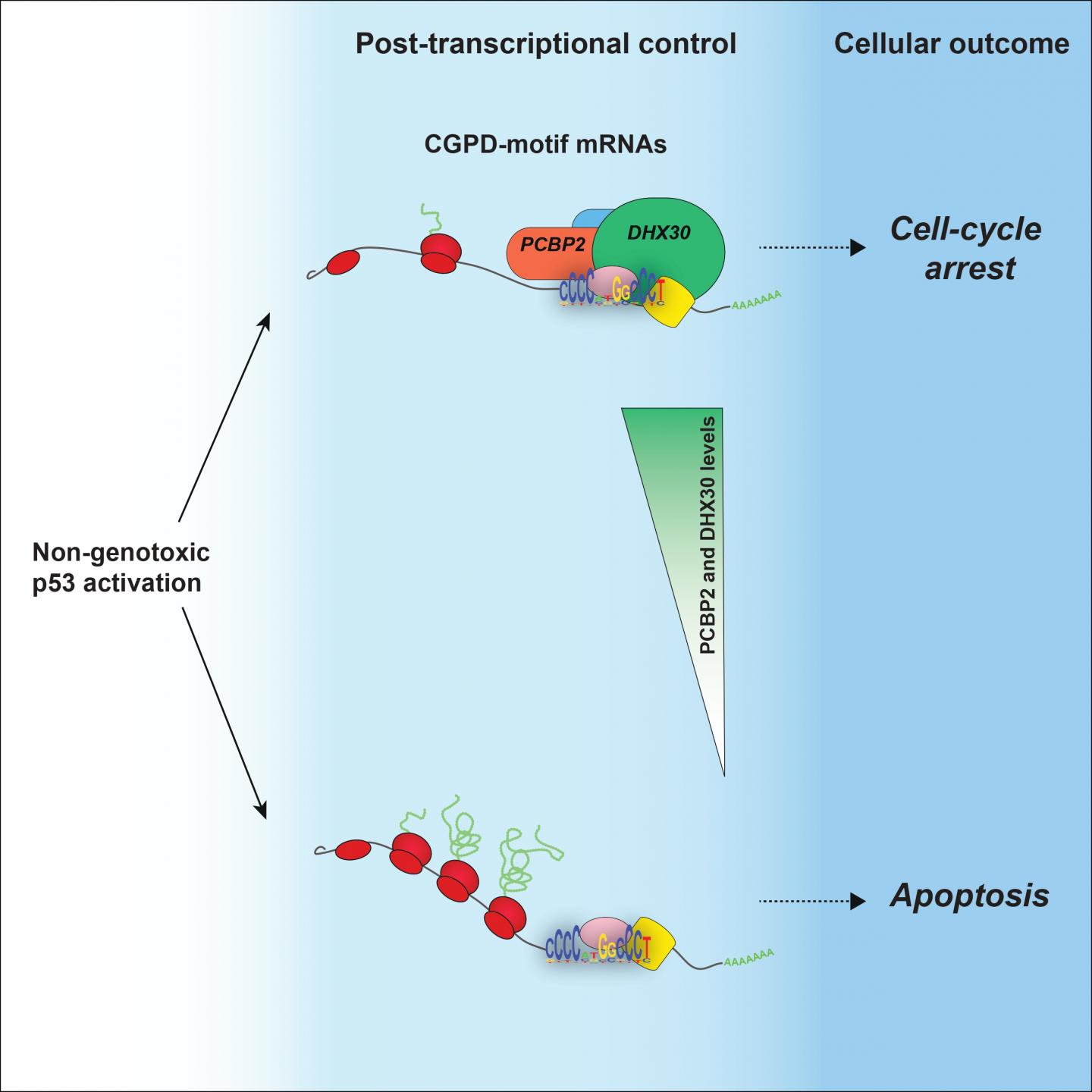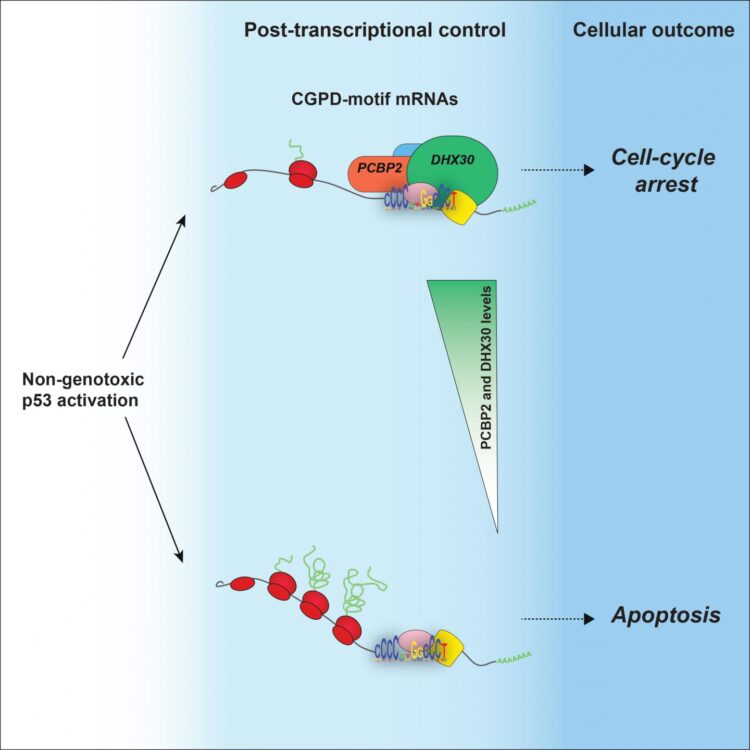A team of researchers of the University of Trento focused on a new molecular mechanism that works like a ‘switch’

Credit: ©Alberto Inga, UniTrento
There is an ongoing battle between cancer cells and p53, the protein known as ‘the guardian of the genome’, and a study conducted at the University of Trento identified a number of factors that influence the outcome of this battle and therefore the effectiveness of cancer treatments.
Scientists did not know, so far, which elements could lead to two opposite scenarios, of which one is more desirable in therapeutic terms: in one scenario, cancer cells stop proliferating, in the other their death rate increases. Both these outcomes are regulated by the guardian of the genome, the protein p53. Based on the new findings, a specific factor, a protein known as DHX30, determines the way in which p53 can lead cancer cells to their death. That is the conclusion reached by a team of researchers of the University of Trento, who focused on a new molecular mechanism that works like a ‘switch’.
Erik Dassi, member of the research team, explained: “When cancer cells are treated with a certain drug, it is the action of this switch (DHX30) that makes them to go towards cell death and not in the direction of cell cycle arrest”. Alberto Inga, from the same team, added: “The drug activates p53, the well-known guardian of the genome, which oversees the various pathways of cancer cells. Scientists have thought for decades that we could make cancer cells take the direction of programmed cell death by intervening ‘upstream’ of p53”. Dario Rizzotto, first author of the study, clarified: “What we argue, instead, is that a significant part of that decision is made ‘downstream’ of p53. In other words, the activation of p53 in cancer cells can lead to a number of possible responses in the cells; the ‘switch’ that we identified regulates the response that could be the most important for therapeutic reasons. When there is no interaction between DHX30 and relevant mRNAs, cancer cells die”.
This is an important discovery to develop more tailored and effective molecular treatments, especially to treat some types of tumors, for example solid tumors in the colon, breast, lung.
###
About the article
The article “Nutlin-induced apoptosis is specified by a translation program regulated by PCBP2 and DHX30” will be published tomorrow, 31 March 2020, in Cell Reports.
The authors of the study are Dario Rizzotto, Sara Zaccara, Annalisa Rossi, Alessandro Quattrone, Erik Dassi and Alberto Inga of the Department of Cellular, computational and integrative biology – Cibio of the University of Trento, with Matthew D. Galbraith, Zdenek Andrysik, Ahwan Pandey, Kelly D. Sullivan and Joaquín M. Espinosa of the Anschutz Medical Campus, University of Colorado.
The article will be available in Open Access.
Media Contact
Alessandra Saletti
[email protected]
Related Journal Article
http://dx.





